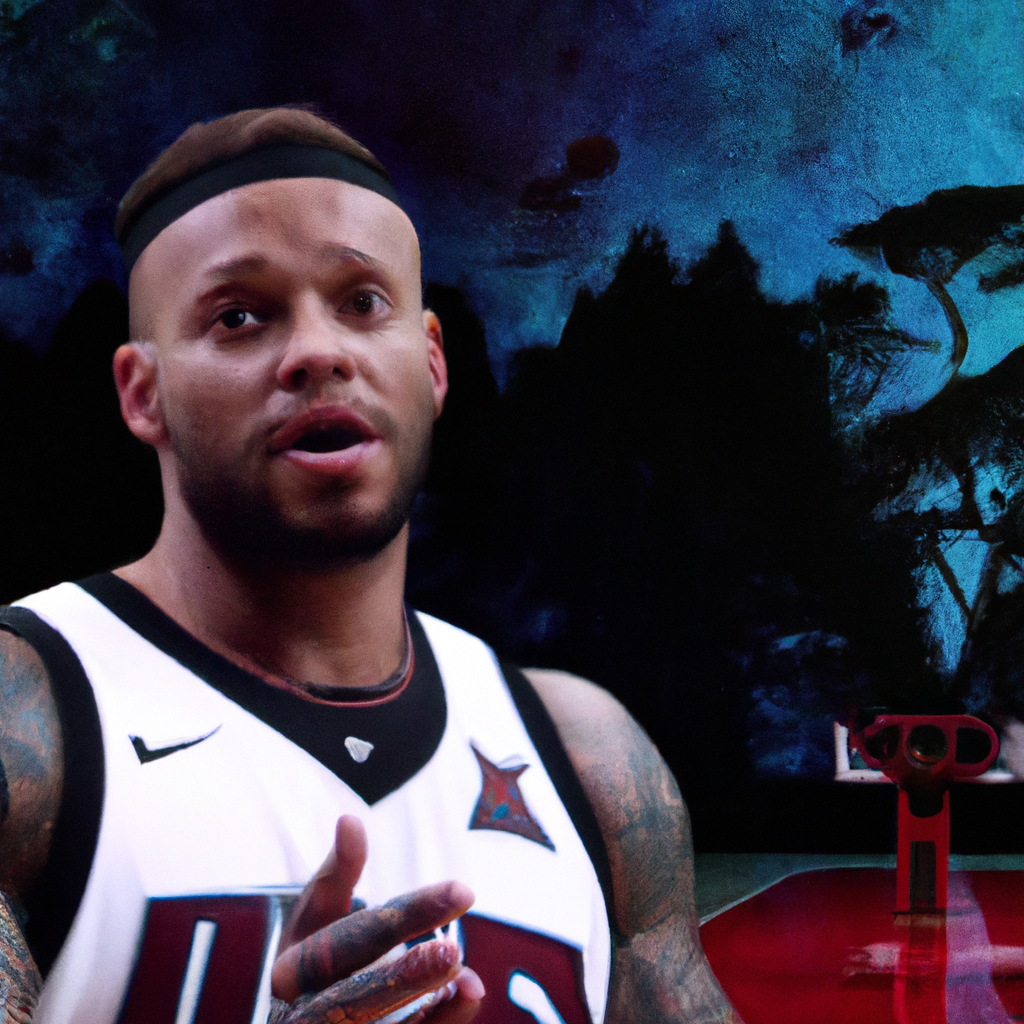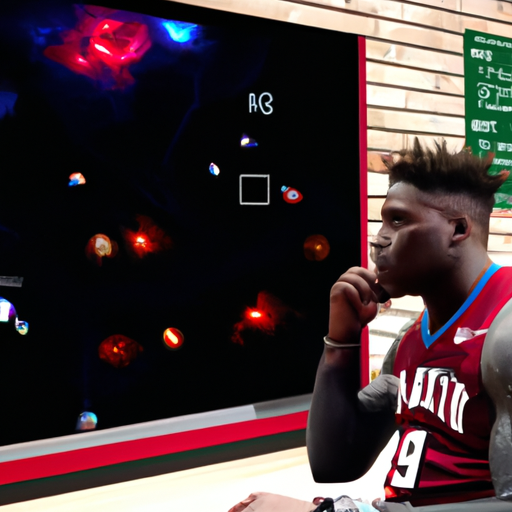Nate Robinson talks Bulls not offering him contract after balling out in 2013 playoffs

The Impact of Nate Robinson’s Performance in the 2013 Playoffs
Nate Robinson, a former NBA player known for his explosive style of play, recently opened up about his experience with the Chicago Bulls in the 2013 playoffs. Despite his outstanding performance during that time, the Bulls did not offer him a contract for the following season. This decision left many fans and analysts puzzled, as Robinson’s contributions were instrumental in the team’s success during the playoffs.
During the 2013 playoffs, Robinson showcased his exceptional skills and proved to be a valuable asset for the Bulls. He consistently delivered high-scoring performances, providing a much-needed offensive spark for the team. His ability to create scoring opportunities for himself and his teammates was unmatched, and he quickly became a fan favorite.
Robinson’s impact was particularly evident in the second round of the playoffs against the Brooklyn Nets. In Game 4 of the series, he exploded for 34 points, including 23 in the fourth quarter and overtime, leading the Bulls to a crucial victory. His electrifying performance not only energized the team but also captivated fans across the league.
Furthermore, Robinson’s contributions extended beyond his scoring ability. He displayed remarkable resilience and determination, often playing through injuries and never backing down from a challenge. His fearless attitude and relentless pursuit of victory inspired his teammates and instilled a sense of confidence in the Bulls’ locker room.
Despite his remarkable playoff run, the Bulls ultimately decided not to offer Robinson a contract for the following season. This decision left many fans and analysts perplexed, as it seemed to disregard the impact he had on the team’s success. Robinson himself expressed his disappointment, stating that he felt he had proven his worth and deserved to be rewarded with a contract.
The Bulls’ decision not to re-sign Robinson can be attributed to a variety of factors. One possible reason is the team’s desire to pursue other players who fit their long-term plans better. While Robinson’s performance in the playoffs was exceptional, the Bulls may have felt that his style of play and skill set did not align with their overall strategy.
Additionally, the Bulls may have been concerned about Robinson’s consistency and ability to sustain his high level of play over an entire season. While he undoubtedly had moments of brilliance, there were also instances where his decision-making and shot selection were questionable. The Bulls may have been hesitant to commit to a player who could potentially be a liability in the long run.
Ultimately, the decision not to offer Robinson a contract was a difficult one for the Bulls. While his impact in the 2013 playoffs was undeniable, the team had to consider various factors in their long-term planning. It is worth noting that Robinson went on to play for several other teams in the NBA, continuing to showcase his talent and contribute to his teams’ success.
In conclusion, Nate Robinson’s performance in the 2013 playoffs had a significant impact on the Chicago Bulls’ success. His exceptional scoring ability, resilience, and fearless attitude made him a fan favorite and a crucial contributor to the team’s playoff run. However, despite his outstanding performance, the Bulls decided not to offer him a contract for the following season. While the decision may have been puzzling to many, it can be attributed to the team’s long-term planning and concerns about Robinson’s consistency. Nonetheless, Robinson’s impact on the Bulls and his subsequent success in the NBA cannot be overlooked.
Analyzing the Bulls’ Decision to Not Offer Nate Robinson a Contract

Nate Robinson, a former NBA player known for his explosive style of play, recently opened up about his disappointment with the Chicago Bulls’ decision not to offer him a contract after his impressive performance in the 2013 playoffs. Robinson, who had joined the Bulls as a free agent that season, had become a fan favorite with his electrifying scoring and clutch performances. However, despite his contributions, the Bulls opted not to bring him back for the following season.
Robinson’s frustration with the Bulls’ decision is understandable. After all, he had played a crucial role in the team’s playoff run, helping them advance to the Eastern Conference Semifinals. In that series against the Brooklyn Nets, Robinson had a career-defining moment when he scored 23 points in the fourth quarter of Game 4, leading the Bulls to a triple-overtime victory. His heroics not only earned him a place in NBA history but also endeared him to Bulls fans who appreciated his never-give-up attitude.
One possible reason for the Bulls’ decision could be their desire to prioritize long-term stability over short-term success. At the time, the Bulls were still reeling from the absence of their star point guard, Derrick Rose, who had suffered a devastating knee injury. With Rose’s return uncertain, the team may have felt the need to focus on developing younger players who could potentially fill the void in the long run. This approach would explain why they chose not to re-sign Robinson, who was already in his early thirties and may not have fit into their long-term plans.
Another factor that may have influenced the Bulls’ decision is the team’s financial situation. The NBA operates under a salary cap, which limits the amount of money teams can spend on player salaries. The Bulls, like many other teams, may have been mindful of their financial flexibility and decided that investing in younger, cheaper talent was a more prudent move. While Robinson’s performance in the playoffs was undoubtedly impressive, the Bulls may have felt that they could find similar production at a lower cost.
It is also worth considering the dynamics of team chemistry. While Robinson’s scoring ability was undeniable, his playing style could be seen as somewhat erratic and unpredictable. This could have clashed with the Bulls’ desire for a more structured and disciplined approach. Coaches and team management often prioritize players who can seamlessly integrate into their system and contribute to a cohesive team environment. Despite Robinson’s individual brilliance, the Bulls may have felt that his style of play did not align with their long-term vision for the team.
Ultimately, the decision not to offer Nate Robinson a contract was a calculated one by the Chicago Bulls. While his performance in the 2013 playoffs was exceptional, the team had to consider various factors such as long-term stability, financial constraints, and team chemistry. It is important to remember that professional sports teams must make difficult decisions based on what they believe is in the best interest of the organization as a whole. While Robinson’s disappointment is understandable, it is crucial to view the situation from a broader perspective.
Nate Robinson’s Career Trajectory After the 2013 Playoffs
Nate Robinson, a former NBA player known for his explosive athleticism and scoring ability, found himself at a crossroads in his career after the 2013 playoffs. Despite his outstanding performance during that postseason, where he played a crucial role in leading the Chicago Bulls to the Eastern Conference Semifinals, Robinson was left without a contract offer from the Bulls. This unexpected turn of events had a significant impact on Robinson’s career trajectory.
Robinson’s remarkable playoff run in 2013 was nothing short of extraordinary. Standing at just 5 feet 9 inches tall, he defied the odds and became a force to be reckoned with on the court. His electrifying performances, including a memorable 23-point fourth quarter against the Brooklyn Nets in Game 4 of the first round, showcased his ability to take over games and make clutch plays when it mattered most.
Despite his heroics, the Bulls’ decision not to offer Robinson a contract left many fans and analysts puzzled. It seemed inconceivable that a player who had played such a vital role in the team’s success would be let go. However, the NBA is a business, and sometimes tough decisions have to be made.
Following his departure from the Bulls, Robinson embarked on a journey that took him to several different teams over the next few years. He joined the Denver Nuggets for the 2013-2014 season, where he continued to display his scoring prowess off the bench. Robinson’s ability to provide instant offense and energize his teammates made him a valuable asset for any team in need of a spark.
However, despite his contributions, Robinson struggled to find stability in the league. He bounced around from team to team, spending time with the Los Angeles Clippers, Boston Celtics, New Orleans Pelicans, and even had a brief stint in the Chinese Basketball Association. This constant movement not only affected his on-court performance but also took a toll on his personal life.
Robinson’s career trajectory after the 2013 playoffs serves as a reminder of the unpredictable nature of professional sports. Despite his undeniable talent, he found himself constantly searching for a team that would give him a chance to prove himself once again. The lack of a long-term contract offer from the Bulls seemed to have a lasting impact on his career, as he struggled to find a stable role on any team.
However, Robinson’s resilience and determination never wavered. He continued to work hard and stay ready for any opportunity that came his way. In 2018, he made a comeback to the NBA, signing a 10-day contract with the New Orleans Pelicans. Although his return was short-lived, it was a testament to his unwavering passion for the game.
Today, Nate Robinson has transitioned into a new phase of his career. While he may no longer be playing in the NBA, his impact on the game and his unforgettable performances during the 2013 playoffs will forever be remembered. Robinson’s journey serves as a reminder that success in professional sports is not always determined by contracts or accolades but by the resilience and determination to keep pushing forward, no matter the obstacles faced.
In conclusion, Nate Robinson’s career trajectory after the 2013 playoffs took an unexpected turn when the Chicago Bulls chose not to offer him a contract. Despite his outstanding performances during that postseason, Robinson struggled to find stability in the league and bounced around from team to team. However, his resilience and determination never wavered, and he made a comeback to the NBA in 2018. Today, Robinson’s impact on the game and his unforgettable performances continue to inspire aspiring basketball players around the world.

